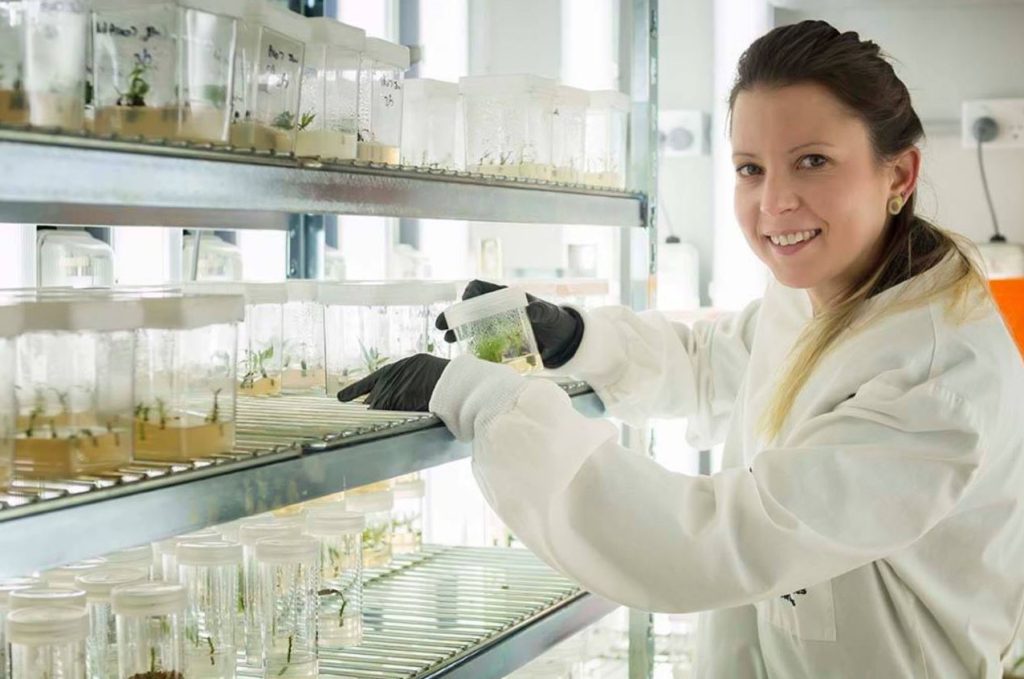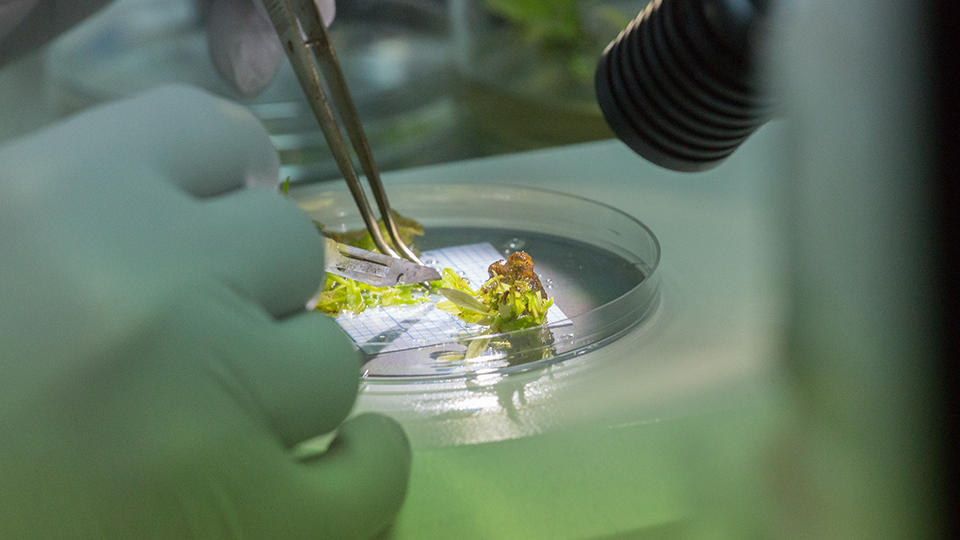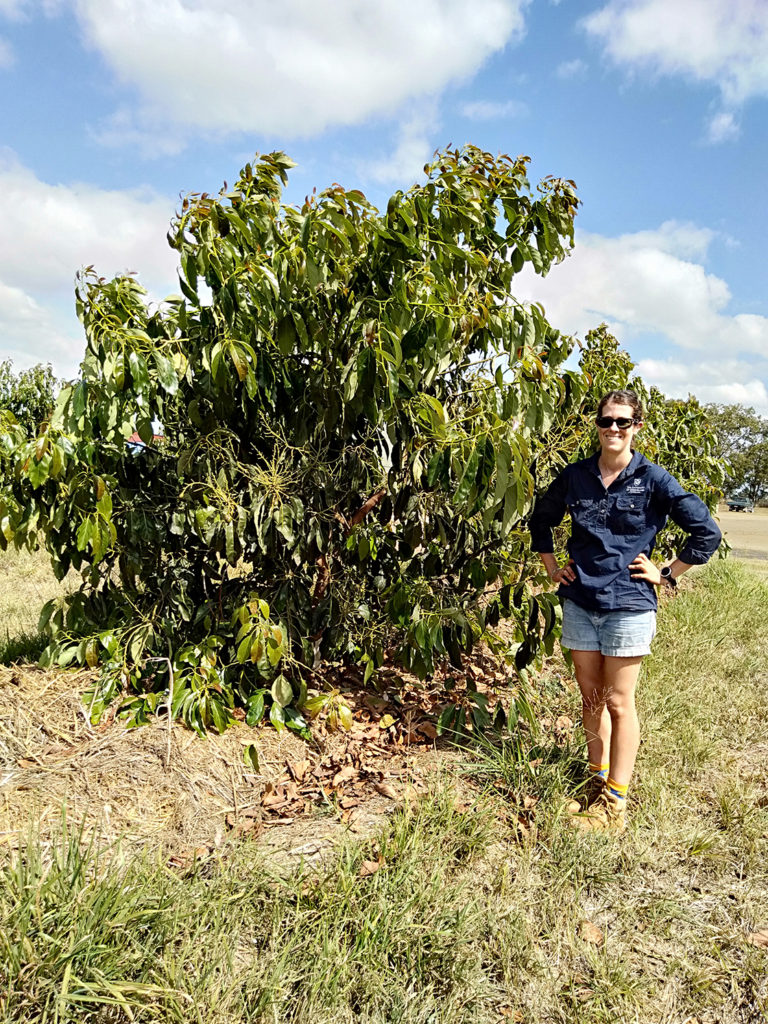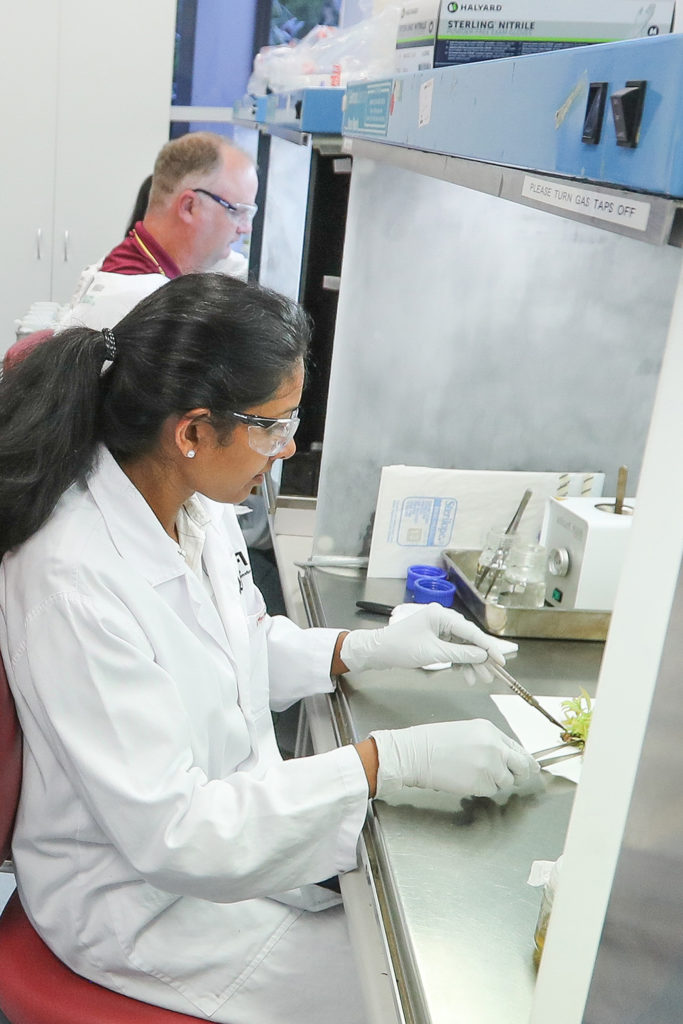
Avocado farmers could start producing more fruit to keep up with demand once propagation technology, trialled in the Bundaberg Region, is commercialised.
It’s a world-first for the industry, with the success of the technology never having worked before due to the “traditionally finicky nature” of avocado trees.
The Mitter Team from the Queensland Alliance for Agriculture and Food Innovation (QAAFI) have been working on avocado tissue culture propagation as part of a joint State Government and industry funded project.
Professor Neena Mitter said the technique, which was currently on trial at a number of sites including Donovan Family Farms in Childers, increased the number of avocado trees that could be propagated from one single shoot.
“Rather than the normal propagation technique of creating one plant from one cutting or one plant from one seed, this new technology allows 500 clonal plants from a single shoot-tip in culture within 8 to 12 months,” she said.
“The end goal is to create a tool that allows farmers to have the rootstock variety they want, in the numbers they want, when they want it.”
The project is good news for farmers and avocado lovers alike, with Aussies having lifted their avocado consumption to 3.8 kilograms per person, per year according to Avocados Australia.

Childers farm a trial site for avocado seedling propagation
Donovan Family Investments in Childers has been involved in the research project for almost three years with Director Lachlan Donovan stating a number of propagated avocado trees had been growing at the farm for the past 18 months.
“It’s certainly been successful so far,” he said.
“The trees are all growing- we are still a little way away from setting commercial crops but the theory all works and we have trees in the ground.”

Lachlan said the technology would work to reduce both the cost and the timeframe from ordering trees to planting.
“This has in the past been a delay of two to three years,” he said.
“The biggest advantage for us is to be able to get overseas rootstocks and varieties quickly into production.
“Traditionally if a new variety came out overseas it would be around 10 years or longer to get the trees imported, several years in quarantine and then grown out here to get budwood to start the commercialisation.”
Lachlan said with the new technology, his farm could bring in tissue culture material to propagate and multiply so commercial plantings of new varieties would be available in as little as 18 months.
“This would work for both the rootstocks and variety,” he said.
“It would be fantastic to be able to have the latest varieties ready for the consumer as quickly as possible.”
Benefits a-plenty with avocado technology
Dr Madeleine Gleeson, who manages the field trials of this project, said the research could benefit farmers Australia-wide, providing a productive, competitive and sustainable avocado industry for years to come.
“Currently, fields must be maintained just for seed (not fruit) to produce new trees,” she said.
“This costs water, fertilisers, pest management etc and is consuming valuable arable land for non-food production purposes.
“Tissue culture can make hundreds of new trees from a few shoot tips in a small sterile room and is therefore significantly less resource intensive.”

Dr Gleeson said there were also benefits when it came to the export of the seedlings.
“The material is sterilised from all bacteria and fungus, so the risk of spreading pathogens around the globe is significantly reduced,” she said.
“Furthermore, they would be transported on a sterile agar that contains all the nutrition the plants need; movement of soil is a massive biosecurity risk and is thus eliminated with tissue culture.”
Dr Gleeson said with funding from an Advance Queensland Innovation Partnership and in partnership with the University of Southern Queensland and Central Queensland University, the researchers would continue to monitor the project with the potential for the technology to reach further than just avocado farms.
“Tissue culture is already used to propagate many different berry species, apple, kiwi fruit, banana and more,” she said.
“It is a propagation tool that has existed for years, it has just never been successful for avocado as the woody tree species are traditionally finicky to work with.
“If there are any produce industries out there who wish to have tissue culture protocols optimised for their crop species, that is a conversation we are very interested in having.”
She said an industry stakeholder information day would be held on 25 March in Childers for people to find out more.
“Part of this event will include a trip to the Donovan’s Family Farm to view the first established field trial using avocado tissue culture propagation techniques,” she said.
To find out more about the field day click here.
To read more about the avocado tissue culture propagation project click here.
- Other news: Small Farms Field Day focuses on pest management




